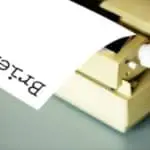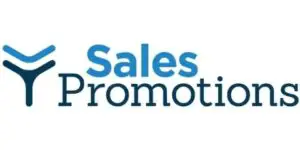Table of Contents
Expanding Perspectives In A Changing Tech Environment
Online design contests have opened up a new opportunity for businesses to use a sales promotion technique to outsource design projects.
*This post may contain affiliate links. As an Amazon Associate we earn from qualifying purchases.

Now businesses can use the power of the internet to bring their need for a graphic design logo or other creative needs to a broader range of global bidders.
Design competitions as an online business model have proliferated to the point that businesses and designers have become skeptical. Should you use a design contest to create your brand image?
The bottom line is that business owners need the security that they will be getting a good result for a fair price. Designers need to feel secure that their investment of time and talent will be appreciated and compensated.
(Here is a link to an example Design Contest site that meets the criteria for good design and price/value fairness to client/designer: DesignContest)
5 Design Competitions Benefits For A Business Owner
1. Fast money and turnaround

Saving money is often the primary reason a business chooses to work with an online contest site to generate several designs to choose from quickly.
While this tactic may be a good way to control cost going in, remember you always get what you pay for.
If you create a logo design contest with a prize of $25, the more talented designers probably would not waste their time and talent for such a small incentive.
If a simple logo design will suffice, then there are many designers from around the world who will participate. Consider that the more budget you allocate toward your prize, the better talent you will attract.
2. A creative brief for consistency

Most online design competitions will require you to complete a creative brief to give designers direction.
A small business owner, or a person not from a marketing background, may not have seen a need to provide very specific direction for past projects.
There is a benefit of starting your logo design contest by answering carefully thought out directional questions. You will have a document to keep everyone focused to be used for judging the winning entries.
The design brief also shortens the design process, making more designers willing to accept the challenge.

3. Choose among multiple designs
When a business works directly with one agency or designer they may get a logo design
Granted, direct communication with the designer or agency allows them to be more connected to your history, mission, customer relationships and your vision for the future. With more insight, they can develop a well thought out design strategy.
Creating an online design competition opens your creative brief to multiple designers submitting their different take on your project. This process may lead to twenty or more designs with totally different creative approaches to select from.
4. Give you a different perspective

Designers from different cities, cultures or creative backgrounds have the ability to look at the same creative brief from a different perspective. Cultural differences may enable diverse designers to come up with solutions you couldn’t have imagined.
Training and circumstances influence how different designers translate what your business creates against what people need.
A social message, a price to value illustration or other depictions of your brand may be an unexpected result of putting your design contest out to bid in a larger pool of creative talent.
Who knows, a different take away from your creative brief may be just the thing that gets you noticed to create a competitive advantage.
5. Reduce administrative headaches
Online contest or crowdsourcing sites typically manage the business agreements or contracts with both the business owner and designers. The set-up of payment systems is also handled through the online provider.

Another admin benefit is that the format and posting of art submissions to a preview page is all done through the contest site. This provides consistency for submissions which saves headaches once you go into final production.
The online provider should manage a detailed online document explaining copyright and ownership of the winning design before embarking on a design competition.
There are a lot of moving parts all with exposure to legal liability in the design world and in contest administration. Different countries may have different laws regarding contest participation. All of these details should be the realm of the online contest provider.
Having all potential administrative and legal issues handled before agreeing to run a contest is a huge benefit.
5 Design Contest Disadvantages For A Business Owner
1. You may get what you pay for

When your prize amount is very low, many talented designers will not take the time to participate.
Their time is better spent doing things that bring in a higher payout.
A twenty-five dollar logo design reward may get you multiple entries.
More likely you may be getting a formula entry using universal imagery that may not be the game-changing brand image you had hoped for.
2. Can you work with the winning designer?
Most designs need to be ‘tweaked’ a little from its original submitted structure. This may be tricky when you are working with a contest or crowdsourcing site. Often the site owner wants to keep their hand in the communications between the business owner and designer.
Most sites have a process established that allows for slight design changes. Should you investigate a design competition be clear how the design adjustment process works. The process should be fair for all parties. Yet get the job done with prices that don’t abuse the designer time and talent.
3. Online designers are not business partners

The best way to work with your internal and external team is for everyone to work as mutual partners to achieve a combined goal.
Working with an agency or a designer as part of your strategic team involves them in the planning process.
Their deeper understanding of your company’s vision, mission, your customer’s journey, and other intimate details provides a greater depth of understanding and creativity.
In an ideal world, as your business grows the relationship with the designer grows as well.
Ongoing changes and graphic variations for things like product extension or entering new business markets can be created together.
If your objective is a short-term fix for a logo or other design, crowdsourcing and contests may be fine. Professional designers do to stress that business relationships produce a higher quality product.
4. Do you own the rights to the design
More than likely the details of copyright and trademark will be turned over to the business owner upon selection of the winning design. Once the designer is paid, in the form of a prize, and they sign over all rights to the design, the business owns the logo or design purchased.
This process should be addressed before the competition begins, and clearly understood by all parties.
It may be the case that contestants have a universal design, which they tweak for each contest submission. Or, the designer may want to use the logo or design to promote their business. These uses of a similar design that was created for your identity could potentially degrade your brand image.
Having the ability to work with an agency or designer directly gives you the opportunity to sort out these details going in, and as business needs change.
5. What if you don’t like any submitted designs
Many of the design crowdsourcing competition sites state that they offer a money back guarantee. This should be good news for the business owner that takes a leap of faith when running a design contest.

In my experience, I have found that creative design is subjective. Everyone brings their personal taste, feelings, and opinions to the party.
Technically, if the designer follows the direction provided in the creative brief, there should be little room for dispute. It is a slippery slope when specifications are met and you don’t want to pay. I am pretty sure that the online provider of the contest would refund your money based on their disclaimers.
However, they may have every right to refer to the direction you provided and how the submitted designs met your requirements.
I have contracted directly with agencies and designers in developing creative and have found that there are often several versions or tweaks of a design before everyone is satisfied.

